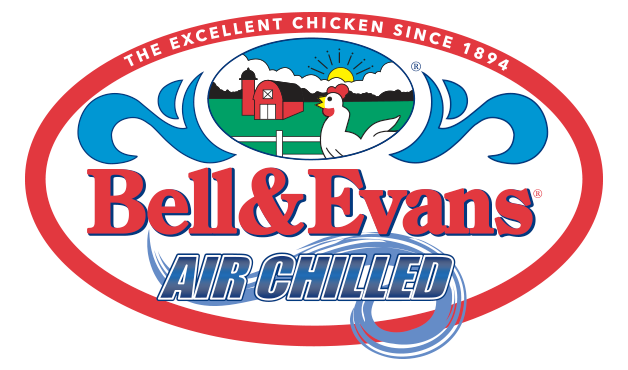I began raising and selling chickens at age seven or eight and it was my passion from day one. I wanted my chickens to be healthy and happy. Even as a kid, common sense told me that chickens – or any animal for that matter – could be raised without the need for antibiotics if you kept them healthy from the start by cleaning their housing properly and feeding them right. Of course, even my own dad was a skeptic and told me that if I raised chickens with the level of care I wanted, no one would be able to afford them. My response was always, if I can’t raise them the best way I know how, I won’t raise them at all.
In 1984, at age 24, I seized the opportunity to purchase a local poultry processing plant. Two years later, I purchased the Bell & Evans label from the retiring Bell family. I merged the businesses together and finally had the opportunity to implement my ideas on a larger scale. I’ve been reinventing the way chickens are raised, processed and packaged ever since, starting with the removal of antibiotics. We improved our chicken houses, cleaned up our chicken feed formula and reassessed our handling processes to eliminate as much stress as we could for the birds. By 1998, Bell & Evans successfully eliminated the use of antibiotics in 100% of its production, the first U.S. poultry producer to do so. We’re celebrating 20 years without antibiotics in 2018!
I’ve collaborated with many people over the years who were researching antibiotic use in meat production. I was the only major chicken producer for nearly 20 years who removed all antibiotics and so I was able to speak on the higher welfare practices that made it possible. While commodity producers kept making excuses for why it couldn’t be done, those who were paying attention to Bell & Evans knew better and came to me for answers.
- In 2006, I met with Professor Ellen Silbergeld of Bloomsberg School of Public Health at Johns Hopkins University. At that time, Bell & Evans was nearing a decade of raising chickens without antibiotics. She was researching antibiotic abuse and arsenic feed additives. I was the industry expert on both fronts, having also removed hexane-processed soybean from our chicken feed. In 2016, Ellen published Chickenizing Farms and Food, a discussion about industrial farming methods that endanger workers, animals and consumers. I endorsed her book because it raised real concerns. I am forever grateful to Ellen and Johns Hopkins for validating my efforts to remove antibiotics from poultry and bringing attention to antibiotic abuse at a larger scale.
- In 2014, I met with author Maryn McKenna who was doing research for her 2017 book Big Chicken, The Incredible Story of How Antibiotics Created Modern Agriculture and Changed the Way the World Eats. The book highlights Bell & Evans’ practices as the industry leader and innovator in removing antibiotics from meat production.
- On June 2, 2015, I was invited to speak at the White House Forum on Antibiotic Stewardship. There, I served as a panelist during a private breakout session and spoke on how we raised and fed chickens, as well as eliminated stress, in order to remove the use of antibiotics from our production in 1998.
Professor Ellen Silbergeld confirms the influential role of Bell & Evans in changing industry practices. “When my research team visited the company headquarters, it was refutation of the general assumption that antibiotics were essential to the intensive model of food animal production,” said Silbergeld. “The rest of the industry is now catching up to the lessons that we learned from Scott and his company.”
The antibiotic discussion is far from over, considering most commodity producers are only starting to think about higher welfare standards to eliminate the crutch of antibiotics. While we’ll continue to innovate and find ways to do better, many others are only getting started.


So the penicillin that is used in hatch egg houses doesn’t count as using antibiotics? I would think that it would be carried in the chick though the hen.
Hi Darren! At Bell & Evans, our breeder, hatchery and broiler operations are 100% in our control. Each area is different and requires a customized approach to our chickens’ health. Breeder birds live a long time in chicken terms. We take extra steps to keep their environment as clean as possible, but if they become sick, we will treat under the supervision of a poultry veterinarian. Penicillin (or any other antibiotic) is rarely needed or used in our breeder operations. It is not used near egg production age and it is our experience that if a flock is treated, significant levels are not passed on through the egg to progeny (chicks). We just published a virtual tour of our breeder operations and encourage you to take a look inside. https://www.bellandevans.com/our-farms/#higher-welfare-breed
Antibiotics are never used at our organic hatchery nor on our broiler farms. If we do have a sick flock (we haven’t for over a decade!), they will be treated (also under the supervision of a poultry veterinarian) and sold to a third party commodity processor, never entering our harvest facility. You can find virtual tours for our hatchery and broiler farms on the ‘Our Farms’ page of this website, too.
Do you have any natural treatment/preventative tips for Marek’s disease?
Hi Erin, the Marek’s disease challenge is prevalent throughout the country. It can be spread from bird to bird and by dander and dust. We are not aware of any natural treatments, but preventative vaccinations are an option. Good sanitation practices help to mitigate the challenge.